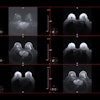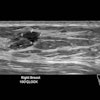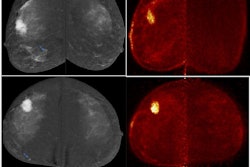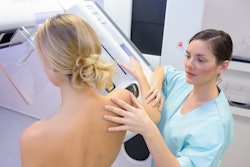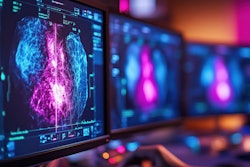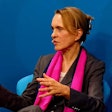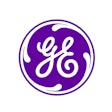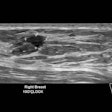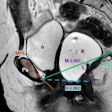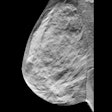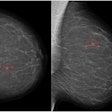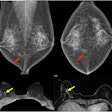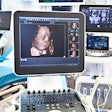Clinical practice hasn't caught up since the European Society of Breast Imaging (EUSOBI) recommended MRI for scanning dense breast tissue in 2022, Prof. Dr. Christiane Kuhl, PhD, has told the popular German news magazine Der Spiegel.
"The structure of breast cancer screening programs in Europe hasn’t changed since the 1970s," she pointed out.
Kuhl has long advocated risk-adjusted screening with more widespread use of MRI. For the magazine, she discussed insights into breast cancer screening program results, as well as opportunities and limitations with ultrasound, mammography, and MRI.
She expressed her admiration for the Netherlands, which is taking a step toward more tailored programs rather than following the prevailing one-size-fits-all approach. The Netherlands will be the first country worldwide to offer systematic MRI screening for women with extremely dense breasts, Kuhl noted.
 Prof. Dr. Christiane Kuhl, PhD, is director of the Department of Radiology at Aachen University Hospital in Germany, president of the German Roentgen Society (DRG), and vice president of the European Society of Breast Imaging (EUSOBI).
Prof. Dr. Christiane Kuhl, PhD, is director of the Department of Radiology at Aachen University Hospital in Germany, president of the German Roentgen Society (DRG), and vice president of the European Society of Breast Imaging (EUSOBI).
There’s no MRI screening for all women, nor should there be, she emphasized. "We want targeted use for women for whom mammography isn’t sufficient."
Women in Germany are frequently offered ultrasound in addition to mammography, as a self-paid service. Ultrasound can be useful for dense glandular tissue, but it’s far less effective than MRI, she told Der Spiegel.
Adding ultrasound to mammography detects an average of 3.7 additional cases per 1,000 women, but MRI screening, as now offered in the Netherlands, is in "a different league," Kuhl explained. MRI can detect 16.5 or more tumors per 1,000 population.
“But screening is not about finding as many cancers as possible,” she added. “It is about protecting women from premature death due to breast cancer. Therefore, it is more important we now have evidence that MRI screening reduces interval cancer rates and thus prevents cancers from being missed or diagnosed too late, despite women’s participation in screening. We do not have this evidence for ultrasound."
When asked about the higher cost of MRI exams compared to ultrasound and mammography, Kuhl pointed out that, based on the cost-effectiveness analysis done by the Dutch, mammography alone is more costly overall.
She recommended women ask about their breast tissue density, highlighting that in the U.S., doctors are required to inform women about breast density. Women should also know that there’s a difference between what standard care currently offers and what’s possible today, she pointed out.
"Hopefully, the decision in the Netherlands will inspire change in Germany too," Kuhl said.
The DRG highlighted the Der Spiegel interview in a 31 October post.
And in her leisure time....
Outside of working hours, Kuhl spends as much time as possible riding horses, particularly her new youngest horse, a galloping grey called Nozomi (aka "Nomi").
 Free spirits: Christiane Kuhl enjoying her time with Nomi.
Free spirits: Christiane Kuhl enjoying her time with Nomi.
"He is so sweet and beautiful," she told AuntMinnieEurope. "I got him when he was only 4. I gave him another year in a field, so he could grow and enjoy himself. Now I am carefully riding him and he is just such fun to ride. As you can see in the picture, his ears are always turned towards me. I am talking to him all the time!"
Kuhl first revealed her love of horses in an April 2020 interview. Her farm and her horses are integral to her mental health, wellbeing, and happiness, she said.



